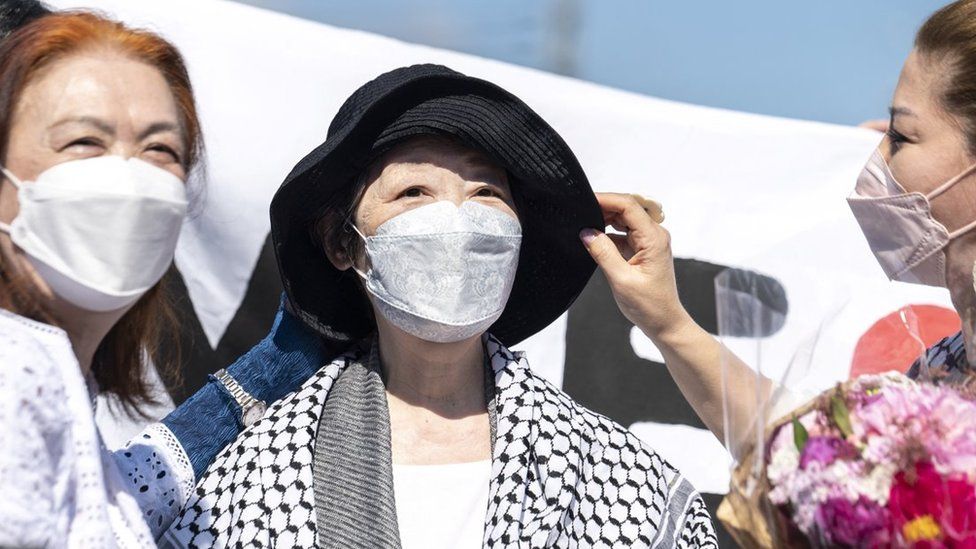Japanese Red Army founder Shigenobu freed after 20 years
- Published

The co-founder of the Japanese Red Army militant group has been freed from prison after serving 20 years for her part in a 1974 embassy siege.
Fusako Shigenobu, 76, had evaded capture for decades before being arrested in Osaka in 2000.
Her once-feared group had aimed to provoke a global socialist revolution through high-profile terror acts.
They carried out a series of hostage-takings and hijackings, as well as a deadly attack on an Israeli airport.
But Shigenobu served time for the 1974 attack on the French embassy in The Hague, in which the ambassador and a number of others were taken hostage by three Red Army militants for 100 hours.
The siege ended after France freed a Red Army militant and the group flew to Syria.
Shigenobu did not take part in the attack herself, but a Japanese court found in 2006 she had helped co-ordinate it, sentencing her to 20 years for her role.
She had disbanded the Japanese Red Army five years earlier while awaiting trial, saying she would seek new fights within the law.
The group's last-known action was the car bombing of a US military club in Italy in 1988.
As she left prison on Saturday, she apologised for causing "damage to innocent people" in pursuit of their causes.
"It's half a century ago... but we caused damage to innocent people who were strangers to us by prioritising our battle, such as by hostage-taking," she said, according to news agency AFP.
She has previously expressed regret for 26 deaths caused by an attack on Tel Aviv's Lod Airport in 1972.
Related Topics
- Published27 October 2011
- Published23 February 2006